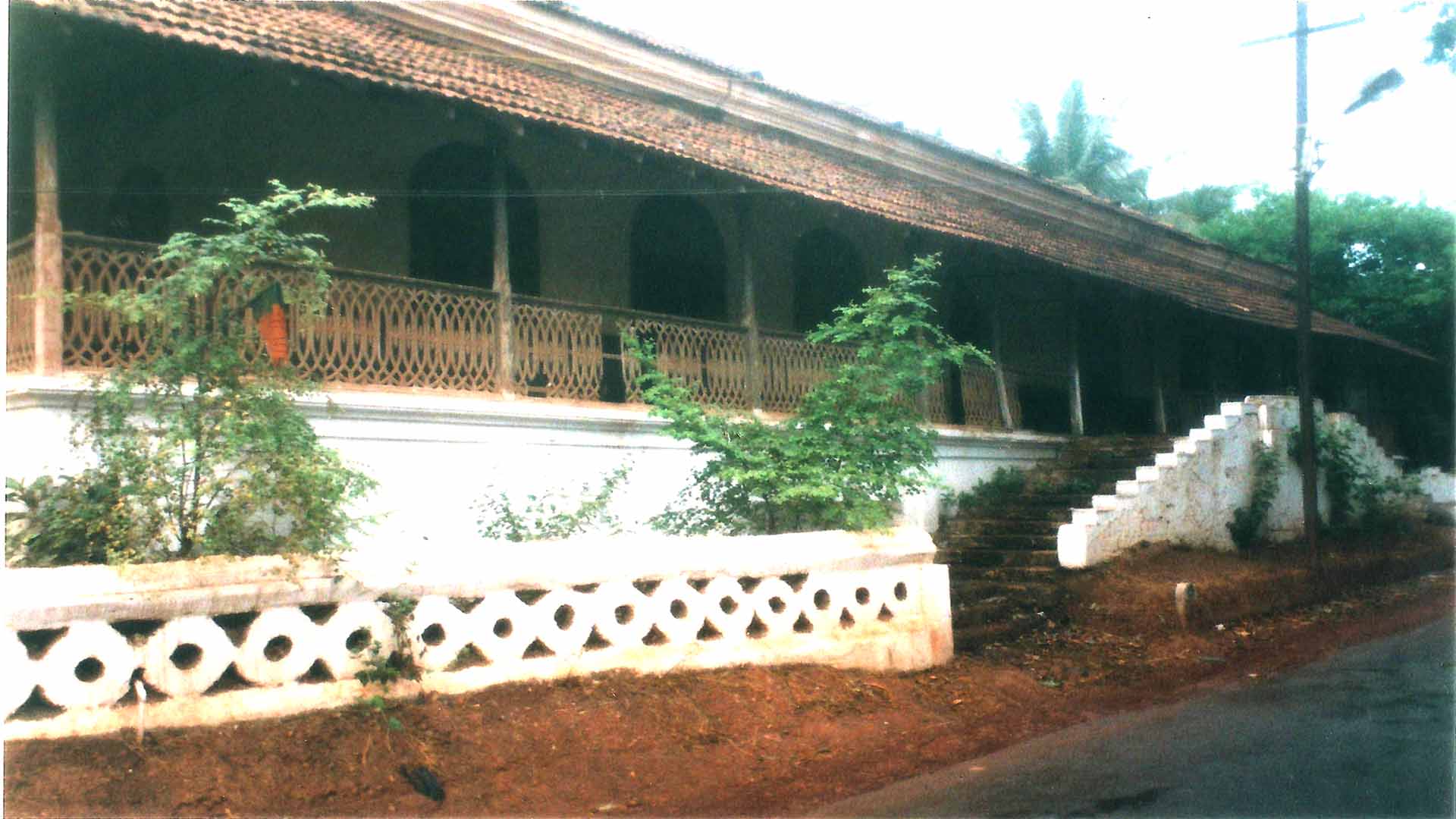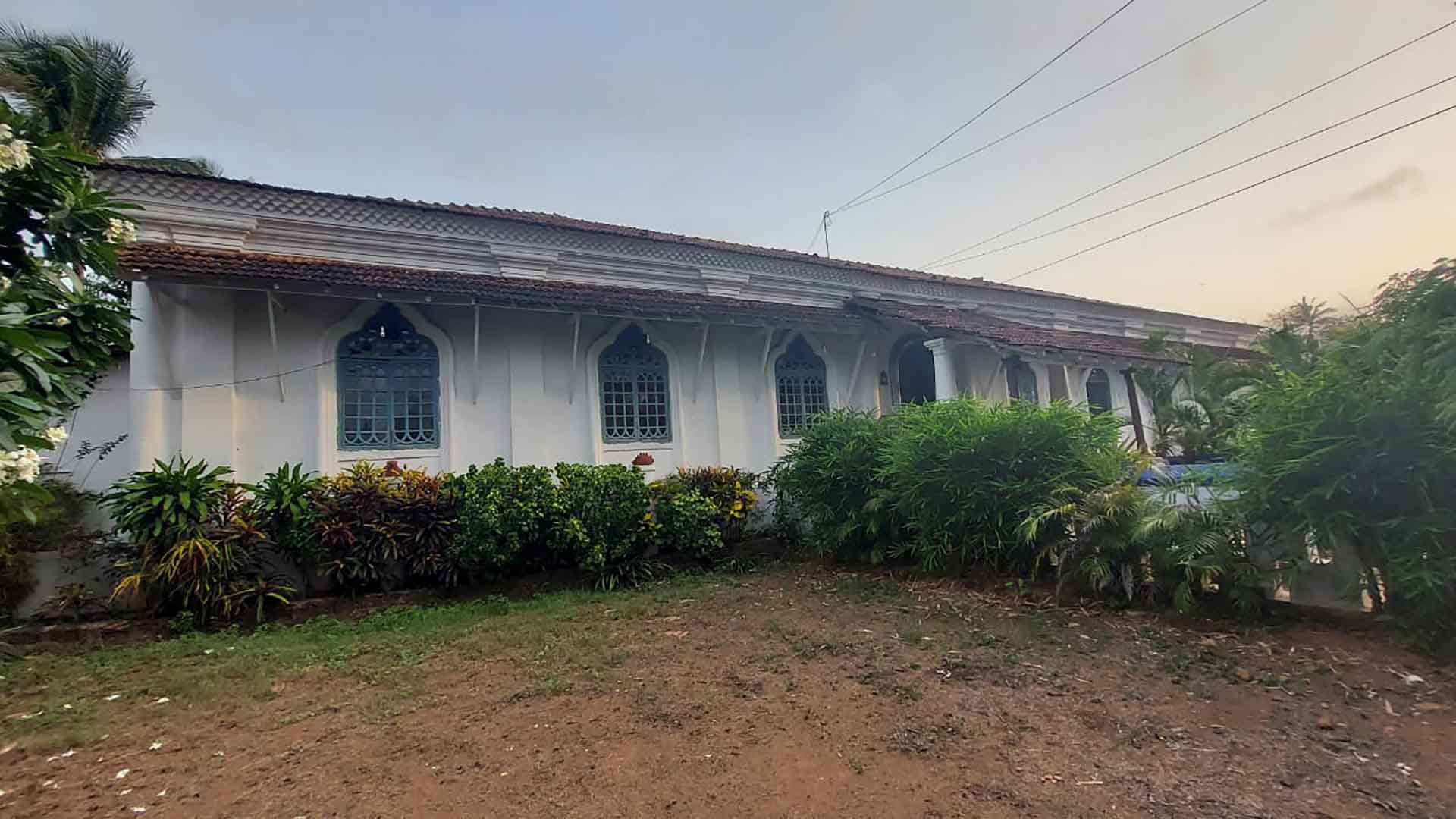Mudança... unforgettable vacation in Goa! (2)
This is the second and final part of the testimonies translated from my podcast Renascença Goa https://www.youtube.com/watch?v=24yo5MFthrg and published in Revista da Casa de Goa.
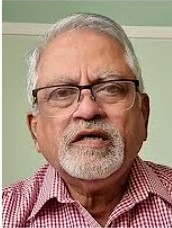 We first have GABRIEL DE FIGUEIREDO, who lives in Melbourne, Australia. He recalls the days that he spent his holidays at Colva beach and in his native village of Loutulim, both in the taluka of Salcete.
We first have GABRIEL DE FIGUEIREDO, who lives in Melbourne, Australia. He recalls the days that he spent his holidays at Colva beach and in his native village of Loutulim, both in the taluka of Salcete.
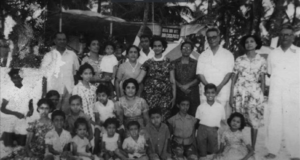 What I understand by mudança: for us kids, mudança was a change of environment - it was going from the city of Panjim, where we lived during school days, to the village of Loutulim and Colvá to spend the holidays and refresh the “soul”. Until about 1964, our Aunt Margarida used to arrange a little house in Colvá for us to spend the month of April, to enjoy the fresh sea air and take a bath, or swim in the sea waves. Our uncles Sebastião (from Margão) and Francisco (from Benaulim), together with their families, used to join us to spend their April holidays there. I don't know why after 1964 we stopped going to Colvá – maybe the owner of the house had changed.
What I understand by mudança: for us kids, mudança was a change of environment - it was going from the city of Panjim, where we lived during school days, to the village of Loutulim and Colvá to spend the holidays and refresh the “soul”. Until about 1964, our Aunt Margarida used to arrange a little house in Colvá for us to spend the month of April, to enjoy the fresh sea air and take a bath, or swim in the sea waves. Our uncles Sebastião (from Margão) and Francisco (from Benaulim), together with their families, used to join us to spend their April holidays there. I don't know why after 1964 we stopped going to Colvá – maybe the owner of the house had changed.
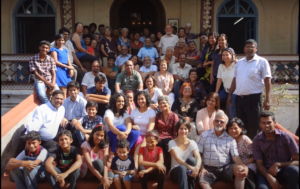 Well, as ours was a musical family, after returning from the beach to the little house, it was time for solfeggio, singing and violin. Apparently, it was here that my father, António, started writing Mandó arrangements after his return to Goa on completion of his training in orchestra conducting at the University of Paris.
Well, as ours was a musical family, after returning from the beach to the little house, it was time for solfeggio, singing and violin. Apparently, it was here that my father, António, started writing Mandó arrangements after his return to Goa on completion of his training in orchestra conducting at the University of Paris.
When we returned to Loutulim to spend the month of May, we had access to home-grown mangoes, jackfruit, cashews, etc. Even in Colvá and also in Loutulim, as there was no electricity supply at the time, Aladdin or Petromax lamps were used at night to give enough light to read. And I read a lot of books those days, more in English than Portuguese, because my maternal grandfather had a book-case full of Reader's Digest, National Geographic, novels like The Saint (Leslie Charteris), Sherlock Holmes, etc. Around 25 May, a feast of Enthronement of the Sacred Heart of Jesus and Mary used to be celebrated, along with uncles and cousins who also came to spend a few days with us.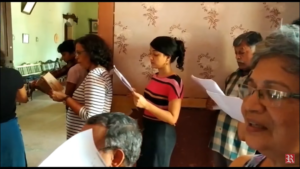
Those were days full of happiness and games. The mudança in October was only to Loutulim, taking advantage of the mid-term vacation that coincided with the Divali festival. We used to hold a novena to Our Lady of Sorrows in the second half of October, with a Rosary sung in Latin and Konkani, on alternate days, the ‘Salve Rainha’ followed by ‘Virgem Mãe de Deus’, both sung in Portuguese.
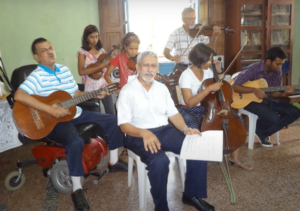 In those days, it was customary for all uncles and cousins to come to spend holidays with us in Loutulim, until the last day of celebration. It was ten days of absolute happiness. Well, after my father passed away in November 1981, this tradition of the month of October came to disappear, unfortunately. My brother Vicente makes an effort to maintain the tradition of Enthronement, along with my sisters Teresa and Celina, inviting cousins and their families (now extending to a few generations) to sing a litany in May, when they go to Loutulim for a mudança when possible.
In those days, it was customary for all uncles and cousins to come to spend holidays with us in Loutulim, until the last day of celebration. It was ten days of absolute happiness. Well, after my father passed away in November 1981, this tradition of the month of October came to disappear, unfortunately. My brother Vicente makes an effort to maintain the tradition of Enthronement, along with my sisters Teresa and Celina, inviting cousins and their families (now extending to a few generations) to sing a litany in May, when they go to Loutulim for a mudança when possible.
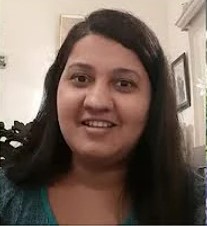 Our next guest is SAADIA FURTADO, from Chinchinim. She remembers spending holidays in Fatrade beach in Varca village.
Our next guest is SAADIA FURTADO, from Chinchinim. She remembers spending holidays in Fatrade beach in Varca village.
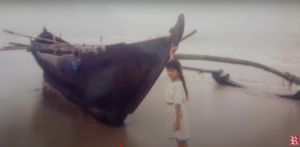 In Goa, the word Mudança is used in a slightly different manner from its original meaning: it means mental rest accompanied by physical relocation. In general, one would go for a mudança during a weekend or when there were public holidays. People from inland areas went to the beach to enjoy the fresh air and to bathe in the sea. It was a healthy practice. One could also go for a mudança by going to a relative's or friend's house or live in a rented house in places where there are fountains and springs which have sources of medicinal properties in water, especially in the case of patients with high blood pressure!
In Goa, the word Mudança is used in a slightly different manner from its original meaning: it means mental rest accompanied by physical relocation. In general, one would go for a mudança during a weekend or when there were public holidays. People from inland areas went to the beach to enjoy the fresh air and to bathe in the sea. It was a healthy practice. One could also go for a mudança by going to a relative's or friend's house or live in a rented house in places where there are fountains and springs which have sources of medicinal properties in water, especially in the case of patients with high blood pressure!
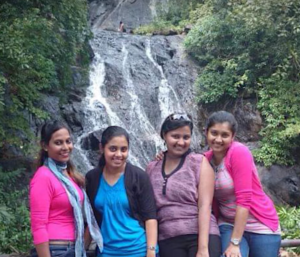 I fondly remember our mudança to Fatrade Beach at Varca, during the months of April and May. There I spent a few days in the company of my parents and relatives. It was a mudança that helped us rejuvenate.
I fondly remember our mudança to Fatrade Beach at Varca, during the months of April and May. There I spent a few days in the company of my parents and relatives. It was a mudança that helped us rejuvenate.
Nowadays, we talk about, that is, when someone goes from one state or country to another for about a week or a fortnight. This meaning is considered different from the term mudança in Goa.
Finally, FAUSTO COLLAÇO, who lives in Margão, goes down memory lane to the holidays spent at his ancestral villages of Raia and Benaulim.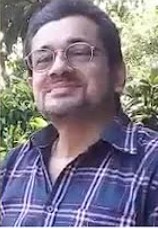
The covid-19 pandemic and its mutant waves heckle us. When talking about holidays, the only holidays we could think of at the moment is to stay at home and spend the holidays there. However, this compulsory retreat takes us back nostalgically to the holidays we used to spend during our childhood, in Goa – the Goa that was for us and the tourist, a Paradise!
When children, we enjoyed semestral holidays. They lasted for over a month each time and so, offered the right opportunity for some holidays during which we stayed over at our grandparents' place in the village! On my mother's side it was the beautiful village of Benaulim and on my father's side it was Raia.
Coming to Benaulim was for us, setting foot on a Fairyland of boundless freedom and fun! My grandparents' place was a confluence of all people - cousins, uncles and aunts, granduncles and aunts, domestic help and, beyond the walls of the house, family friends and the entire village of Benaulim – from the smallest to the greatest! The chapel in the neighbourhood, tolled its bells morning and evening, proclaiming as though, the dawn and dusk! The children whiled away their time at play and also planning out small skits and recitals which accompanied the dinner of the older people at home. They in turn, were an ocean of love and affection! My grandmother used to bring to the table savoury traditional dishes, pickles and desserts. There was always abundant seasonal fruit like mango and jackfruit.
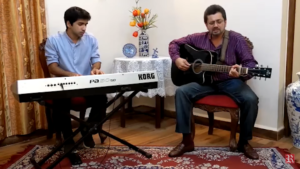 The evenings were often spent in walks by the beach where one would always meet up with friends. We went on occasional picnics in family or in groups. The picnics were naturally regaled with singing and guitars strummed by my uncle Joaquim or other friends. At sunset, the little feet happily plodded back home where, in those bygone days, one was welcomed to the shimmer of kerosene lamps!
The evenings were often spent in walks by the beach where one would always meet up with friends. We went on occasional picnics in family or in groups. The picnics were naturally regaled with singing and guitars strummed by my uncle Joaquim or other friends. At sunset, the little feet happily plodded back home where, in those bygone days, one was welcomed to the shimmer of kerosene lamps!
The ensuing holidays were spent in Raia – my father's ancestral village. It was a particularly quiet and peaceful village. Our house stood in the remote interior, in a ward called 'Santemoll'. It was calm and far from the bustle of the city. Once there, one only heard sounds of nature: birds chirping, distant joyful shrieks of children playing, the bellow and the moo. A river flowed luxuriously a little distance away. Other familiar sounds were the honking of the door-to-door bread or fish vendors and the tinkling of the postman on his cycle. He always had a smile, was cheerful and courteously greeted us while even waggling a tad of Portuguese!
Here too, we enjoyed seasonal fruit and, towards the end of May, heralded by lightning and intimidating thunder, came the showers – initially a light drizzle which soon swelled into a heavy downpour! The gutters gurgled noisily and the fields flooded up with rainwater. The weather cooled, grasses and weeds sprouted here and there. There was a burst of green everywhere! The ploughman plunged into work toiling the fields with a pair of oxen and a wooden plough, swinging into action his strong and able arm, with a dextrousness defined by many years of experience! He transformed the field into a veil of greenery undulating in the breeze - an enchanting sight for the locals and tourists alike!
Such was the idyll of village life in Goa and of our holidays in the villages! Today, consequent to changing times, they're quite different and are on their way to even greater transformation. One hopes, however, that this idyll which was the life and the land of Goa, will never be lost altogether.
------
Acknowledgement: Many thanks to the three guests for their respective translations published in Revista da Casa de Goa, Series II, No. 17, July-August 2022. The third text was further edited by the respective author for this blogpost.
Mudança... unforgettable vacation in Goa!
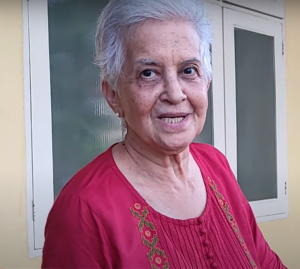 SATYÁ DA COSTA FERREIRA, who lives in Miramar, Panjim, Goa, fondly remembers the days that her family spent at Bogmaló beach in the taluka of Mormugão.
SATYÁ DA COSTA FERREIRA, who lives in Miramar, Panjim, Goa, fondly remembers the days that her family spent at Bogmaló beach in the taluka of Mormugão.
As I was talking to Óscar on the phone, we spoke about vacations, especially the type of vacations we had in the past….
We were a large family and studied at Liceu Nacional Afonso de Albuquerque in Panjim. After our classes and exams, we would go with our parents to our ancestral home, in Loutulim, and from there, after a few days, to Bogmaló, where we would spend about two and a half months.
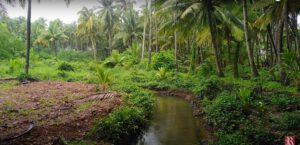 In Bogmaló, life was different. We children went to the beach and our parents and aunts, who were there with us, had other tasks. In Bogmaló, our family had an estate with palm trees and, so we took advantage of this vacation time to have coconut tree plucking. In the initial days of the plucking – particularly on the first day – our father took me and my older sisters along – they were three and six years older than me – to see, to learn how they did it. He then asked us to make a note of the number of coconuts, on a palm leaf, in Roman numerals. I liked these walks with my father, but I was simply too afraid to cross the different parts of the estate on trunks of coconut trees: they were trunk slits placed on either side; and I was always too afraid to cross them.
In Bogmaló, life was different. We children went to the beach and our parents and aunts, who were there with us, had other tasks. In Bogmaló, our family had an estate with palm trees and, so we took advantage of this vacation time to have coconut tree plucking. In the initial days of the plucking – particularly on the first day – our father took me and my older sisters along – they were three and six years older than me – to see, to learn how they did it. He then asked us to make a note of the number of coconuts, on a palm leaf, in Roman numerals. I liked these walks with my father, but I was simply too afraid to cross the different parts of the estate on trunks of coconut trees: they were trunk slits placed on either side; and I was always too afraid to cross them.
In Bogmaló, people basically had two professions: one was the production of palm wine and the other was fishing. So, in each house, they all had a still [piece of equipment used to make strong alcoholic drinks by a process called distilling], and early in the morning, at noon and in the evening, the tenants came there, to climb the coconut trees that they had taken on lease from the owners. And we really liked to see the men climbing the coconut trees with great agility.
Their other profession was fishing. Our house was located on the beach, and on certain days there was a lot of commotion on the beach when fishermen cast their nets. There could be anything like 10, 20 or 30 fishermen. And what we liked was to see them pulling nets loaded with fish: what variety and what abundance!
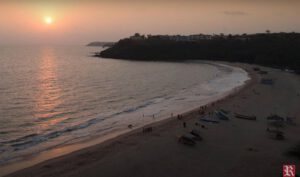 Often, we were very sorry that we didn't have anyone to play with us on the beach, no other children of our age to play: it was just the aunts and us, three sisters, on the beach... Today, when I go to Bogmaló there isn’t even a spot where I can be all by myself – there simply isn't!
Often, we were very sorry that we didn't have anyone to play with us on the beach, no other children of our age to play: it was just the aunts and us, three sisters, on the beach... Today, when I go to Bogmaló there isn’t even a spot where I can be all by myself – there simply isn't!
At home, the aunts and Mother kept busy with other tasks: one of them was making broomsticks for brooms to be used all year round. The other occupation there was to watch the labourers dehusk coconuts. These were later taken to the village, to Loutulim, where oil was extracted. And I greatly admired the ease and agility with which they peeled hundreds of coconuts.
What else did they do? They made a provision of salted fish in Bogmaló, and it was stored for the monsoon, when there was a shortage of fish.
Now, on the beach, we children played in the sand and in the water, and the aunts bathed in the sea water. It was thought at that time that a bath in the sea would prevent typical monsoon ailments in the elderly.
And that is how the two and a half months passed and we returned home in the same way to get ready to resume our classes in Panjim. Those were our vacations and our mudanças!
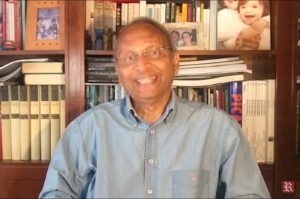 JOSÉ FILIPE MONTEIRO, who lives in Lisbon, recalls the spots where he spent his vacations with family and friends in the talukas (concelhos) of Ilhas and Salcete, Goa.
JOSÉ FILIPE MONTEIRO, who lives in Lisbon, recalls the spots where he spent his vacations with family and friends in the talukas (concelhos) of Ilhas and Salcete, Goa.
It is with great pleasure that I send this statement to your Renascença programme.
You asked me to talk about mudanças – vacations – and, really, this is a very grateful memory: after all, recordar é viver, to remember is to live, or as I usually say, we are our memory!
Mudanças! Holidays, or vilegiatura, vacationing, as we used to say in Goa – and even the newspapers carried the news of where we went on a mudança or this vacation.
Classes in Goa ended in February, and in March we had the exams. April and May were the summer vacation months par excellence.
And what did this mudança imply? It meant leaving Panjim city and spend a few weeks on a beach closeby. In Panjim, that could be Caranzalém beach, or Calangute. It was rarer for us, residents of Panjim, to go on vacation to Colvá beach or to a beach in Salcete. And I remember that, for this small distance of 3 or 4 km, we even took along some furniture; but it was very interesting.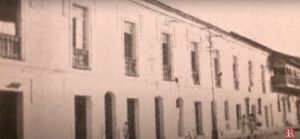
I remember with great nostalgia one o f the vacations I spent in Caranzalém. We had a Portuguese soldier as a neighbour who, after all, was trying to teach me how to swim. Of course, it was more about diving and drinking lots of sea water!
I also remember fondly my trips to my paternal grandparents' house: from there we would go to Velção beach. This meant going in a van, with all the cousins.
But the most interesting thing about these vacations, these long holidays, was that we went in droves looking for wild fruits; it was our meeting with cousins; and then we sat at the big, long dinner table.
Anyway, one of the typical things about Goa were these mudanças, these vacations, which I think were a mark of a society – I wouldn't say that it was the whole of society could change – there were a few, more privileged, who had the financial capacity to make these changes.
But, anyway, I think you do very well to remember those moments that were part of our entire past. I think that nowadays things don't work the same way.
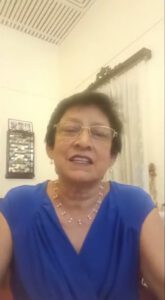 IVETE SILVEIRA BARRETO, who lives on the picturesque island of Divar, Goa, speaks of vacations spent in São Matias, Benaulim and Calangute, in Ilhas, Salcete and Bardez talukas, respectively.
IVETE SILVEIRA BARRETO, who lives on the picturesque island of Divar, Goa, speaks of vacations spent in São Matias, Benaulim and Calangute, in Ilhas, Salcete and Bardez talukas, respectively.
I have fond and vivid memories of my childhood and teenage days, especially of the great enthusiasm with which we prepared and went for the so-called ‘Mudança’ (holidays), in the months of May and October.
When I was a child our mudança used to be at my paternal grandparents’ house in São Matias, on the island of Divar, or at my maternal grandparents’ house at Bairro Povoação, close to the Monte in Benaulim.
To go to Divar, we had to travel by lancha (launch) or the so-called gasolina (a mechanised boat) which carried around 25 to 30 seated passengers. It used to leave from the dock at Navegação in Panjim and go directly to Vitogem in Divar, where all the passengers would alight. From there we had to walk for around 15 minutes, to reach the house. In the event of missing the gasolina – which happened only rarely – we would have to travel by carreira (bus) from Panjim to Old Goa and get down at the junction, near the post office, and walk to ferry point, through the Viceroys’ Arch. In those days, there was no ferry-boat, so we had to cross the river in a canoe rowed by two boatmen. After crossing over, the walking distance to the house would be two or three times more than from Vitogem, depending on our pace. Somehow, we enjoyed the trip and never felt tired.
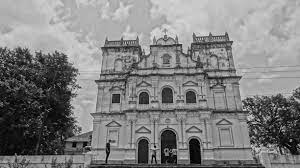
As for the journey to Benaulim, it was also by carreira or bus from Panjim to Margão and another to Colva. We had to get down midway, near the Monte, and walk for just 10 minutes.
Our daily schedule in both these vast and roomy houses was more or less the same.
Breakfast was limited to bread, chapatis or kailoios with butter, cheese, mangada (mango jelly) or guava jelly; the compulsory midmeal, around 11.00 a.m., consisted of pez (canjee) with attoiloli koddi (condensed curry of the previous day), a variety of chutney (pickles) and fruits like mango and jackfruit.
Besides the delicious rice-curry, with tasty river fish and prawns, there was a variety of dishes made with beef, chicken, duck, pigling and pork – from livestock reared at home. In those days, there were no refrigerators and no electrical gadgets. Ingredients were ground on the grinding stone and cooked in earthenware.
Evening tea consisted of a variety of sweet dishes such as ghoddchem, kongeli, orn, xevio, doce bhaji, doce de batata, cocada, bática, and so on – a different one each day. Unfortunately, some of these are neither seen nor heard of nowadays.
As far as amusement was concerned, we had more fun in São Matias, since half a dozen first cousins would also join us for the mudança. Mornings were spent playing games like tikttem, tablas, cruzada, skipping rope, or we would walk around the backyard in search of guavas, rozambadde, jambool. At times, we would go visiting elderly relatives or family friends in the locality.
In the evening, we would go to the Hill in São Matias, or to Monte, when in Benaulim, and join the group of girls and boys from the neighbourhood. After collecting kanddam and charam, it would be games followed up by a sing-song session. But, at the sound of the Angelus bell, we would start moving back home.
Conversations with our grandmothers used to be very informative. They would talk about the family tree and blood relationships; their own life experiences; village stories, and so on.
When I was a teenager, in the mid-sixties, our mudança to Calangute beach in the month of May became an annual feature. My parents would rent a beach house of the local fisherfolk, each time at a different place, for the whole of May. The owners would put up a small thatched room for themselves, behind the house. We had to carry all our requirements, like mattresses, pillows, mats, linen, crockery, cutlery, utensils, and some foodstuff, too.
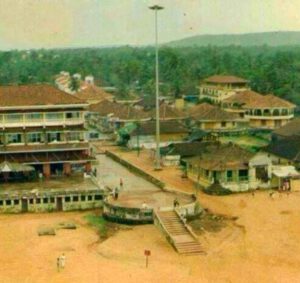 The interesting part of this mudança was the Calangute Saturday market, which had everything, like provisions, earthenware, and even livestock. Among the items we purchased, a pigling costing just Rs 20/- was something exciting to return home with. The pigling would be tied to a bamboo stick carried on the shoulders by two of my brothers. Thus, on Sunday, we could look forward to pigling cabidela or assado.
The interesting part of this mudança was the Calangute Saturday market, which had everything, like provisions, earthenware, and even livestock. Among the items we purchased, a pigling costing just Rs 20/- was something exciting to return home with. The pigling would be tied to a bamboo stick carried on the shoulders by two of my brothers. Thus, on Sunday, we could look forward to pigling cabidela or assado.
Every morning we would go to the beach and buy fresh fish, collect manddoios, shells, and just dip our feet in the water, since we were not allowed to go swimming. At times, we would stroll down to Baga beach.
We would return to the beach in the evening and join large groups of youngsters from different parts of Goa and Bombay, on their mudança. After games like dog-and-the-bone, ‘killing’ with the tennikoit ring, twos-and-threes, handkerchief, and so on, we would relax playing dumb charades, and follow it up with singing Portuguese, English and Konkani songs and medleys, to the accompaniment of one or two guitars.
Although in all those places we only had candlelight, kerosene lamps, and petromax; and had to bathe with well water heated in a big copper vessel called bann, and use the pig toilet, our mudança was always enjoyable, healthy and memorable.
The daily Rosary, followed by blessings from elders, was never missed even at the mudança.
Indeed, the true friendship, fellowship, cooperation, discipline and the immense joy of the mudança is unforgettable!
First published in Revista da Casa de Goa (Lisbon), Series II, No. 16, May-June 2022, pp. 42-45 https://casadegoa.org/revista/ii-serie-n-o-16-maio-junho-de-2022/
Banner pic: Veiga House, Maina, Curtorim, Goa (Pic courtesy: Alint Coelho)
